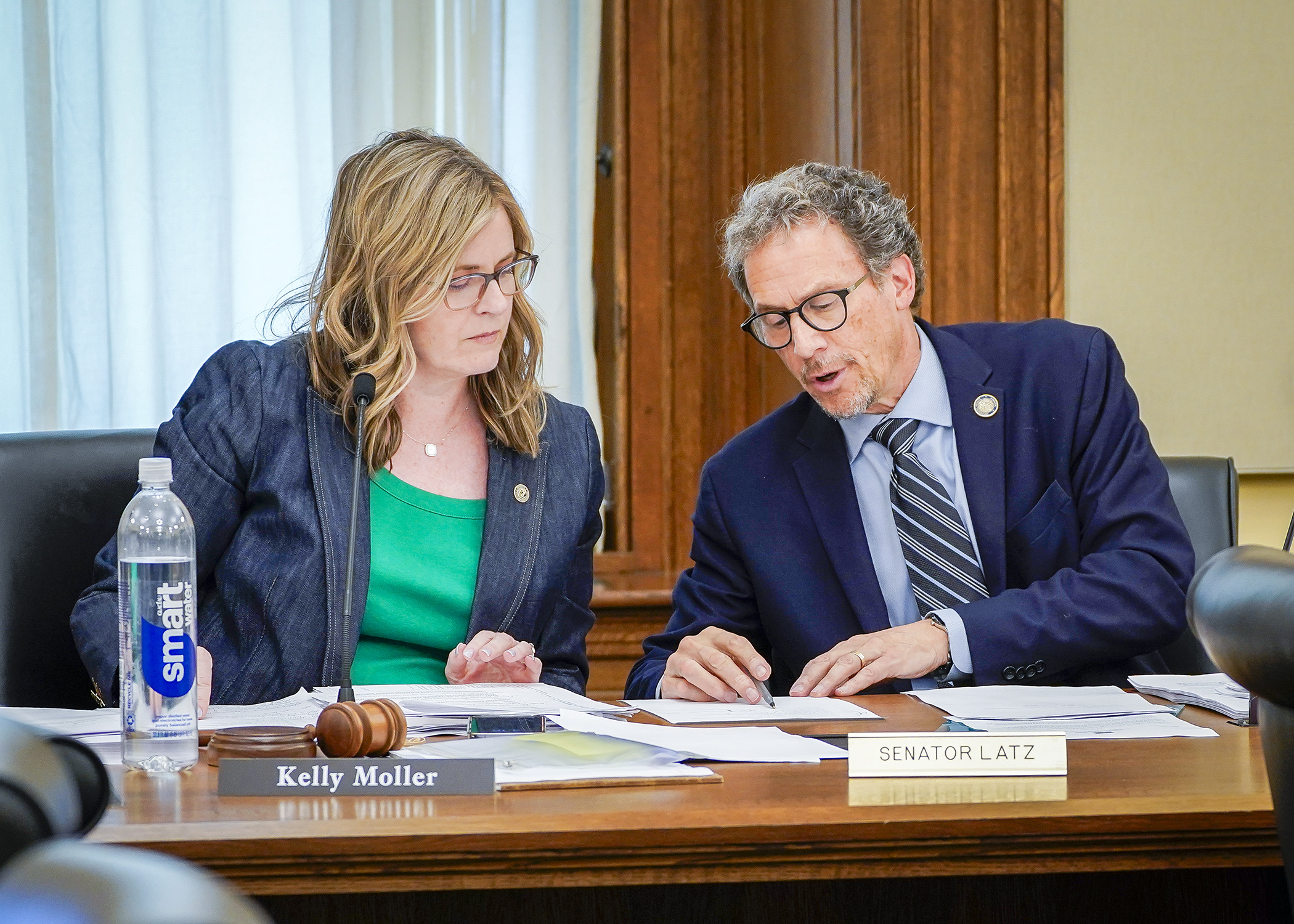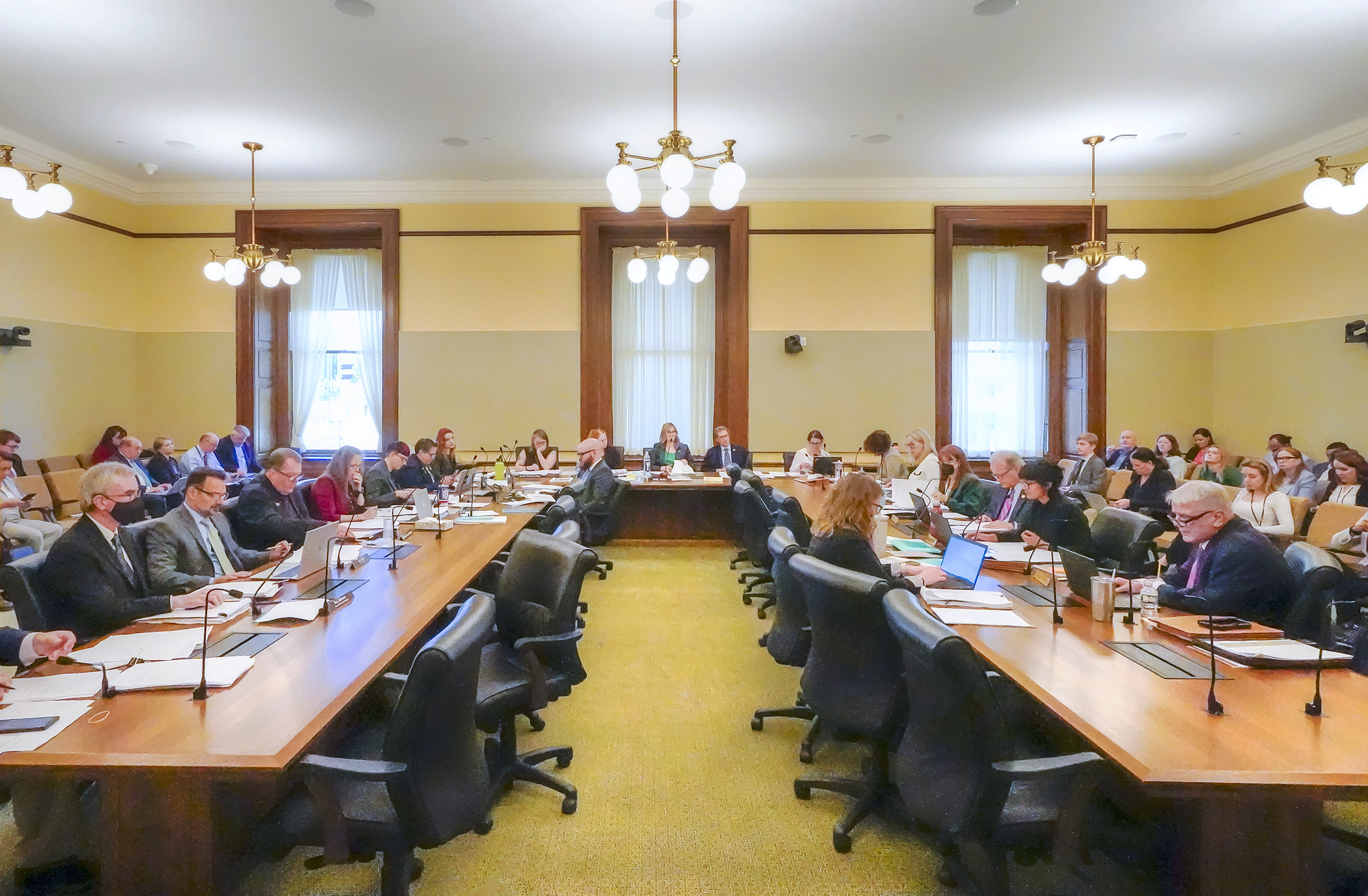House, Senate reach agreement on public safety and judiciary legislation

The public safety and judiciary supplemental budget bill expanded Friday when a conference committee adopted its report combining a $53.9 million appropriations bill with a policy bill containing several dozen public safety and judiciary policy provisions.
Committee co-chair Sen. Ron Latz (DFL-St. Louis Park) said the merger was done in the name of efficiency due to the looming end of the session.
The agreement incorporates the spreadsheet approved by the committee, a delete-all amendment to HF5216 with both finance and policy provisions, plus several technical amendments.
Combined, they constitute the report that’ll be sent back to both bodies for consideration.
“This bill builds on the great work we did last year in the public safety realm, from prevention to rehabilitation, to everything in between,” said committee co-chair Rep. Kelly Moller (DFL-Shoreview).
“I am really proud of the work especially pertaining to victims that are in this bill; the policy provisions but also the funding,” Moller said.
The funding she referenced is $9.5 million in fiscal year 2025 that would go the Office of Justice Programs within the Department of Public Safety to distribute to organizations and programs providing services to crime victims.
Appropriations
The grand total for judiciary items in the bill is $36 million, with district courts being the largest beneficiary at an additional $30.3 million for the 2024-25 biennium. The Supreme Court would receive $5.7 million, with $5.1 million of that to enhance cybersecurity in all state judiciary system courts.
A one-time $500,000 appropriation in fiscal year 2025 would fund a competitive grant program for courthouse safety and security improvements, including making security assessments, purchasing equipment and technologies, or training. Recipients would need to provide 50% matching funds.
The bill would spend $22.3 million for district courts to hire more courtroom forensic examiners and boost their hourly pay from $125 to $136. They provide mental health examinations in civil commitment and criminal proceedings.
The Department of Corrections would receive $5.9 million in fiscal year 2024 and $2 million in fiscal year 2025 to be used to hire more staff at the state’s 11 prisons and boost their salaries. There would also be $7.1 million in each year of the 2026-27 biennium.
 The conference committee on the judiciary, public safety, and corrections supplemental budget bill meets May 17. (Photo by Andrew VonBank)
The conference committee on the judiciary, public safety, and corrections supplemental budget bill meets May 17. (Photo by Andrew VonBank)There would be $5.4 million to hire more certified courtroom interpreters for non-English speakers and increase their hourly pay from $65 to $75.
All but one appropriation would come from the General Fund. The exception is $7 million from the 911 emergency telecommunications services account for creating a digital geographic information system mapping data of school facilities. The idea is to use these maps to pinpoint for first responders the precise locations of the emergencies they are responding to.
Up to $50 million in spending from the General Fund is not included in the spreadsheet. That’s because it would only be spent to replenish the disaster assistance contingency account if that reserve fund dipped below $50 million and there is enough of a budget surplus at end of a biennium to restore it to $50 million.
Policy provisions
Policy provisions in the agreement include the following, some of which also come with funding requests:
- creating an 11-member State Board of Civil Legal Aid to make decisions about legal aid previously made by a Supreme Court advisory council;
- expanding who is eligible for the Safe at Home program operated by the Office of the Secretary of State;
- allowing juveniles convicted of a crime to forgo paying a court-ordered fine if they participate in a local restorative process established by the Office of Restorative Justice;
- creating and funding a task force on domestic violence and firearms;
- creating and funding a task force on traffic stops;
- requiring and funding a violence against Latina women report;
- creating and funding a program to provide therapy dogs for first responders;
- prohibiting a peace officer from using the perception of the odor of cannabis as the sole basis to search a motor vehicle;
- making it a misdemeanor to interfere with a mandatory reporter making a report on child abuse;
- making inadmissible in court any confession by a juvenile obtained using deception;
- making it a felony when a fictitious call sends first responders to the home of an elected official, judge, prosecuting attorney, prison employee, or a peace officer; and
- banning the “gay panic” defense – eliminating as a legal defense to a crime that the defendant acted based on the discovery of, knowledge about, or potential disclosure of the victim’s actual or perceived sexual orientation, gender identity, or gender expression.
The agreement includes a provision that would prevent a peace officer making a traffic stop for a secondary offense of the motor vehicle code from asking if the driver can identify the reason for the stop. Instead, an officer must first inform the driver of the reason for the stop before engaging in questioning related to the suspected violation.
Rep. Patricia Mueller (R-Austin) unsuccessfully offered an amendment to delete that provision, arguing it goes against long-standing training procedures and would cause confusion.
“Police officers are telling me they are concerned how this is going to be used against them,” she said.
Moller said she understands those concerns, but pointed to language in the provision specifying that a peace officer’s failure to abide by the proposed new change cannot be used as the basis for exclusion of evidence or dismissal of a charge or citation.
Related Articles
Search Session Daily
Advanced Search OptionsPriority Dailies
Speaker Emerita Melissa Hortman, husband killed in attack
By HPIS Staff House Speaker Emerita Melissa Hortman (DFL-Brooklyn Park) and her husband, Mark, were fatally shot in their home early Saturday morning.
Gov. Tim Walz announced the news dur...
House Speaker Emerita Melissa Hortman (DFL-Brooklyn Park) and her husband, Mark, were fatally shot in their home early Saturday morning.
Gov. Tim Walz announced the news dur...
Lawmakers deliver budget bills to governor's desk in one-day special session
By Mike Cook About that talk of needing all 21 hours left in a legislative day to complete a special session?
House members were more than up to the challenge Monday. Beginning at 10 a.m...
About that talk of needing all 21 hours left in a legislative day to complete a special session?
House members were more than up to the challenge Monday. Beginning at 10 a.m...